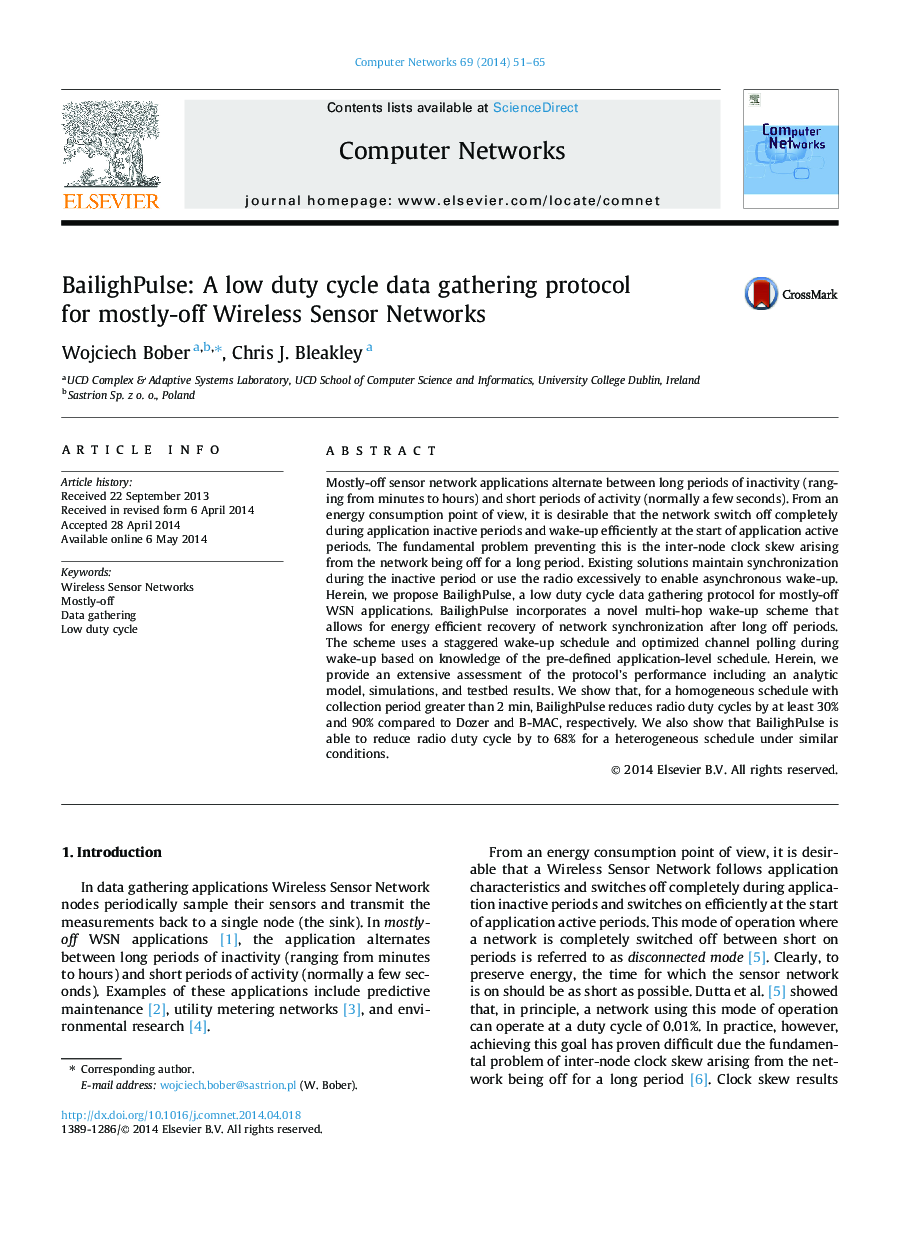| Article ID | Journal | Published Year | Pages | File Type |
|---|---|---|---|---|
| 451038 | Computer Networks | 2014 | 15 Pages |
Mostly-off sensor network applications alternate between long periods of inactivity (ranging from minutes to hours) and short periods of activity (normally a few seconds). From an energy consumption point of view, it is desirable that the network switch off completely during application inactive periods and wake-up efficiently at the start of application active periods. The fundamental problem preventing this is the inter-node clock skew arising from the network being off for a long period. Existing solutions maintain synchronization during the inactive period or use the radio excessively to enable asynchronous wake-up. Herein, we propose BailighPulse, a low duty cycle data gathering protocol for mostly-off WSN applications. BailighPulse incorporates a novel multi-hop wake-up scheme that allows for energy efficient recovery of network synchronization after long off periods. The scheme uses a staggered wake-up schedule and optimized channel polling during wake-up based on knowledge of the pre-defined application-level schedule. Herein, we provide an extensive assessment of the protocol’s performance including an analytic model, simulations, and testbed results. We show that, for a homogeneous schedule with collection period greater than 2 min, BailighPulse reduces radio duty cycles by at least 30% and 90% compared to Dozer and B-MAC, respectively. We also show that BailighPulse is able to reduce radio duty cycle by to 68% for a heterogeneous schedule under similar conditions.
